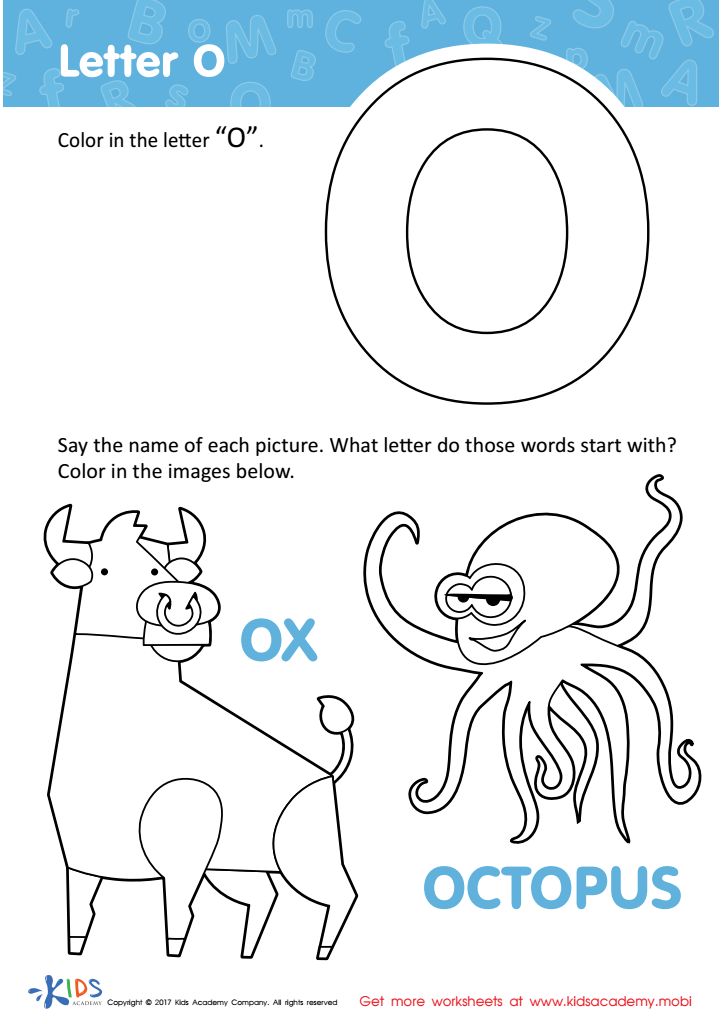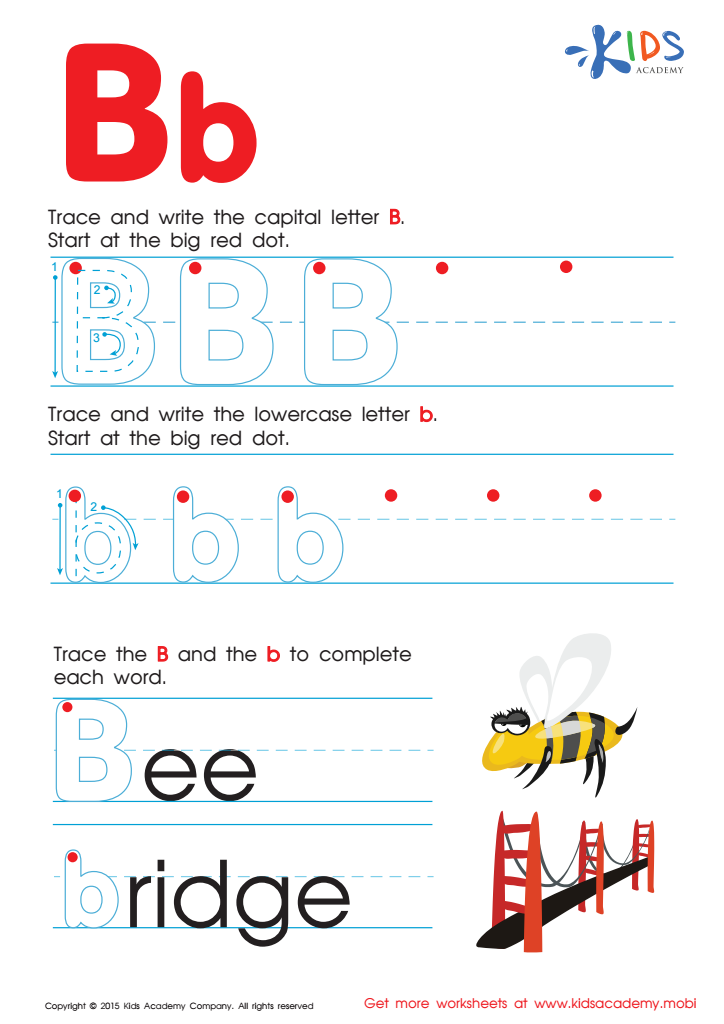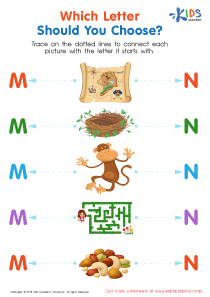Motor skills development Normal Kindergarten Alphabet Worksheets
3 filtered results
-
From - To
Enhance your child's motor skills with our Normal Kindergarten Alphabet Worksheets. Specifically designed for kindergarteners, these worksheets combine fun activities with essential skill-building exercises. Each sheet helps young learners practice writing letters, promoting fine motor development and hand-eye coordination. Our engaging activities are perfect for preparing your child for future academic success while making learning enjoyable. Explore our comprehensive collection to support your child's educational journey. Start today and see the progress!


Letter H Tracing Page


Letter O Coloring Sheet


Letter B Tracing Page
Parents and teachers should prioritize motor skills development during kindergarten because it lays the foundation for a child's overall growth and academic success. Motor skills, divided into gross motor skills (involving large muscle movements like running and jumping) and fine motor skills (involving smaller actions like drawing and writing), are fundamental for daily activities and classroom tasks. Proper development of these skills can influence a child's ability to hold a pencil, use scissors, and participate in play-based learning activities that enhance cognitive and social-emotional development.
Fostering motor skills in conjunction with teaching the alphabet not only improves handwriting but also boosts reading readiness. Children who develop fine motor control can form letters more accurately, aiding in the recognition and replication of alphabet shapes. This coordination supports literacy skills, essential for their educational journey.
Additionally, motor skills contribute to a child's confidence and independence, encouraging engagement in classroom tasks and social interaction with peers. Play-based learning activities that integrate alphabet lessons with motor skill practices, like tracing letters in sand or forming letters with playdough, create a multisensory learning environment. This holistic approach helps reinforce alphabet knowledge economically and joyously, promoting a lifelong love for learning and physical activity. Thus, emphasizing motor skills development as part of kindergarten education is crucial for nurturing well-rounded, capable, and confident children.
 Assign to My Students
Assign to My Students














